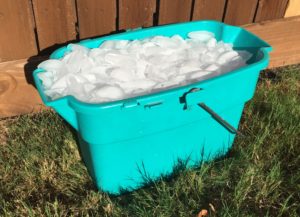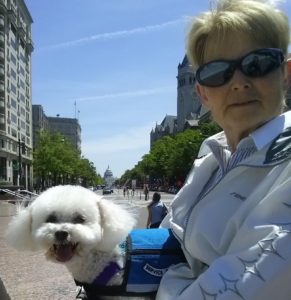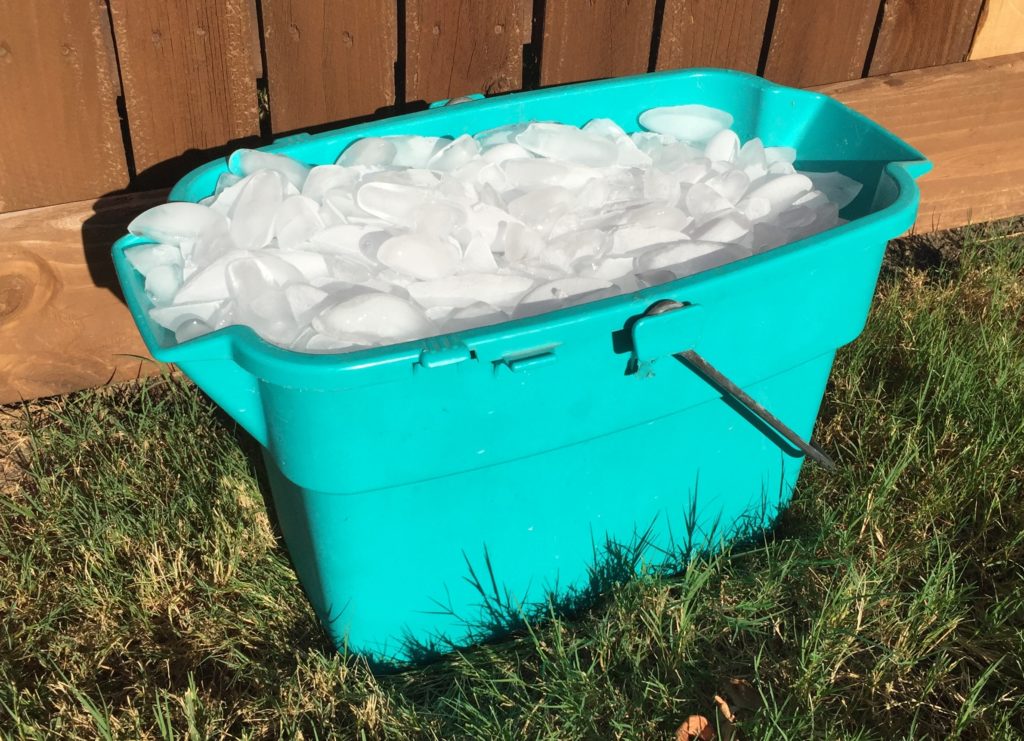Traveling with an Advocate for ALS

Do you remember the Ice Bucket Challenge in 2014? Andrea Heaberg, my uncommon friend and former colleague, recalls her participation. She volunteered with the ALSA (Amyotrophic Lateral Sclerosis Association) with a sneaky suspicion she might have a neurological issue. The Ice Bucket Challenge began as a “grass roots” effort to raise money and awareness for ALS, a.k.a. Lou Gehrig’s disease. The Challenge rode the social media wave around the world for a number of months. Other philanthropies joined the melee to earn money and awareness, but ALSA realized $115 Million that year in donations, which helped fund several new research studies.
A Few Statistics
ALS is difficult to diagnose; it is a progressive, neuromuscular condition without a cure. Three doctors and a year of costly medical tests determined that Andrea Heaberg’s weak hands would never become strong again. She is gradually losing muscle control in her arms and legs and has a caregiver, her husband.
More men than women are afflicted by ALS. A new case is diagnosed every 90 minutes.
Military veterans are 50% more likely to develop ALS than the general population.
There are more than 50,000 people in the U.S. living with ALS; the average lifespan, from diagnosis to death, is 2 to 5 years. By comparison, the FDA drug approval process takes twice that amount of time.
Generally, the ALSA budgets about $39 Million per year to fund research projects and provide grants for specialized equipment, among other support activities for ALS patients; their Board includes patients with ALS. The Muscular Dystrophy Association is involved in similar activities, but ALS is a small part of their focus. When both groups lobby congress for resources, they compete with each other, except where proposed legislation benefits all patients. But…Andrea does her share to help improve the statistics.
The Conference

Last May, a major, world-wide ALS conference occurred in Washington, D.C. Andrea attended, along with more than 1000 others. One hundred and twenty-eight patients from around the world attended. Her husband flew with her or she could not have gone; she can no longer carry a bag or fasten a seat belt. She planned to meet legislators at the conference.
I asked her what she liked about the conference. Her response shows her heart. “I loved hearing about the ongoing drug trials. Seeing the new, marvelous equipment to help with my speech issues encouraged me. The drug trial results may not provide hope for me, but may for those in the future. All the patients we met were extremely positive in their outlook.”
The Advocate
Andrea defines herself as an Advocate for ALS in Texas, not as an ALS patient but as a Person with ALS. She expected to speak to the legislators during the conference, but she wound up visiting with their “specialists” whose roles revolve around improving laws for medical care. She met in the offices of six congressmen and one senator to seek support of three specific bills that would provide immediate or short term benefits to those whose lifespan might be measured in months. The legislative update can be found at alsa.org/advocacy/advocacy-day.
Andrea is eligible for Medicare, but because she will not get better, only worse, Medicare refuses to pay for physical therapy. She can pay for it herself or go without. She has learned many techniques to keep her muscles as flexible as possible at home. “Get on living or get on dying. While there is no bright future for me, I choose to find a new normal every day with something positive to keep me going through my journey,” she says. Her daily struggles include finding alternative ways to remain active without the use of her hands and arms.
Using the phone is a chore, because it is difficult to tap a key. She works from her home office for her ALS organization by contacting legislators and sharing the stories of others. She participates with the local ALS organization during fund-raising walking events (while she is still mobile) and support group activities. As technology improves, she will record her voice (in a voice bank) to use when she can no longer speak, and use her eyes to ‘type’ her communications.
Her personal ‘Bucket List’ includes filling The Ice Bucket. The Challenge is still around, but “we need other local events to find new methods to increase awareness and donors; there are ALS chapters in all 50 states where folks can volunteer.”
As she becomes weaker, her will to live is stronger with her willingness to advocate. If you are looking for a new way to serve others, please think about Andrea, who continues to make a difference in the world while traveling with her illness.
A huge thanks goes to Andrea and Jim Heaberg for their help with this article. More statistics are available at the ALS website.
